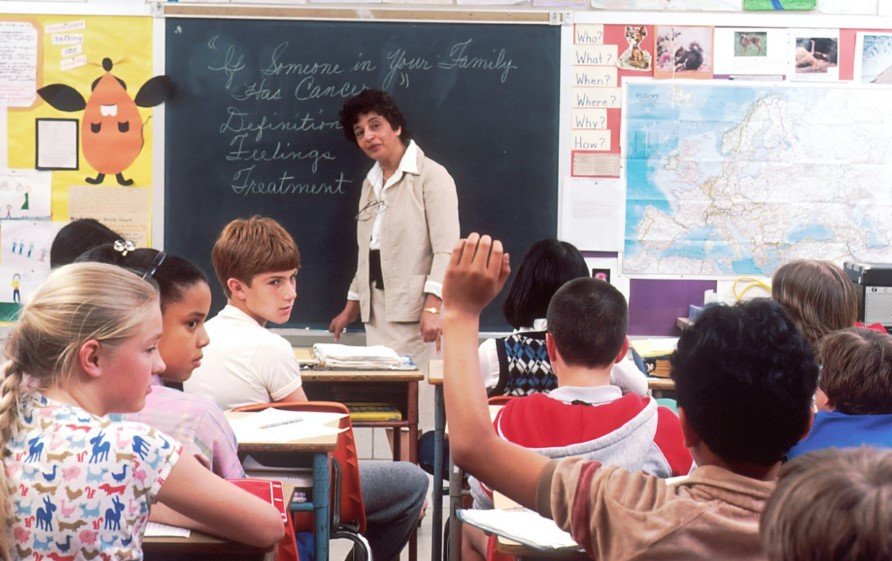How Billionaire Donors Are Shaping School Voucher Policy Across the Nation
School vouchers are a hot-button issue in American politics, and they’re far from universally loved. In fact, they are a rare point of bipartisan consensus — not in favor of, but against. Across the political spectrum, from liberal to conservative voters, the idea of using taxpayer money for private school tuition is seen as a threat to public education. Yet, despite this widespread opposition, voucher programs continue to grow in states like Georgia and beyond. How is this happening?
It’s happening because a small group of ultra-wealthy individuals have made school vouchers their pet project. Using multi-million-dollar campaign donations, they’re reshaping state legislatures across the country, pushing for policies that benefit their vision of education, even if the majority of taxpayers disagree. People like Jeffrey Yass, Betsy DeVos, Richard Uihlein, and Charles Koch are funding these efforts, even in states where their own children won’t be affected by the policies.
The Undemocratic Push for Vouchers
In many states, wealthy backers of school vouchers are attempting to sway public opinion through political intimidation and heavy financial influence. Take Texas, for instance. Jeffrey Yass, along with other wealthy donors, poured tens of millions of dollars into defeating conservative legislators who dared oppose universal vouchers. Their money worked: In the last election, they successfully ousted 15 conservative lawmakers who were against voucher expansion and replaced them with candidates willing to carry the voucher banner.

This kind of political maneuvering doesn’t happen by accident. The massive sums funneled into races for state legislature have a clear purpose: to reshape policy in favor of private school vouchers, which would divert taxpayer money to private institutions, weakening public schools in the process.
Voucher Unpopularity: A State-by-State Reality
Despite this aggressive push from wealthy donors, vouchers have consistently failed to gain traction among voters. In state after state, voters have rejected vouchers when given the chance to weigh in directly. In Nebraska, a state that Donald Trump carried by a landslide, voters overwhelmingly rejected a voucher program that had been pushed by lawmakers. In a referendum held last month, 57% of voters opposed the program, demonstrating just how unpopular the idea remains among the general public.
This was the third time that Nebraskans had voted against using taxpayer dollars for private schooling. It’s clear that, while a small group of powerful individuals might be backing vouchers, the public is not on their side. In Kentucky, where Republicans hold a strong majority, a proposed voucher amendment was defeated by a staggering 30-point margin, with opposition coming from both rural and urban voters alike.
But the fight for vouchers isn’t just being waged in state referendums. The impact of these billionaire donors is also felt in local and national elections. Many politicians, particularly Republicans, have learned that if they want substantial campaign donations for national races, they must align with the views of these wealthy backers and support voucher initiatives.
Georgia’s ‘Limited’ Voucher Program—Or So It Seemed
In Georgia, Republican lawmakers have tried to push a school voucher program for years, despite public opposition. Last year, Governor Brian Kemp was able to push through a voucher law under the guise of helping students in the lowest-performing schools. The original plan was to offer $6,500 in taxpayer-funded vouchers to 22,000 students in the state’s lowest-performing schools. It seemed like a modest, targeted initiative—one that was designed to have minimal impact on the overall education system.
But when state education officials began implementing the law, they quickly discovered something troubling: The law could actually make up to 400,000 students eligible for vouchers. This wasn’t the number that had been discussed during legislative debates, and it raised alarms among lawmakers, including State Rep. Chris Erwin, who pointed out that the expansion went far beyond what had been promised.
This revelation has caused frustration among state officials who felt misled by the initial representation of the bill. House Speaker Pro Tem Jan Jones also expressed disappointment, saying she was not aware of the extent to which the program could be expanded.
The Bait-and-Switch Tactics
This isn’t the first time voucher proponents in Georgia have resorted to such tactics. The promise of a “limited” voucher program was always questionable, and the bait-and-switch approach is typical when supporters know their proposal is too unpopular to pass through straightforward means. When lawmakers are backed into a corner, they can’t afford to be transparent about their true intentions — so they mislead the public, pretending that their proposals will have little impact, only to later reveal the larger, more damaging agenda.
It’s a strategy that has worked in some states, especially where billionaire donors have the ability to sway elections. But it’s also a strategy that stirs up public distrust. For taxpayers, who are already skeptical of the idea of using public funds for private schools, these maneuvers only make things worse.
The fight over school vouchers is far from over. With powerful donors pulling the strings and lawmakers more willing than ever to capitulate to their wishes, public education in many states faces an uncertain future. However, voters have made it clear time and again that they are not on board with this agenda. The question now is whether they will be able to hold onto their power and stop the further erosion of public schools.

Comments